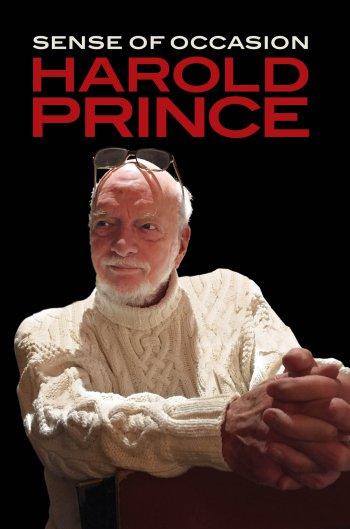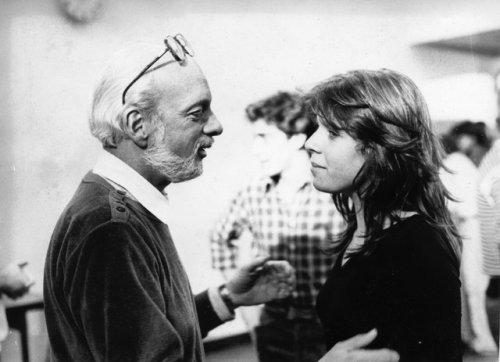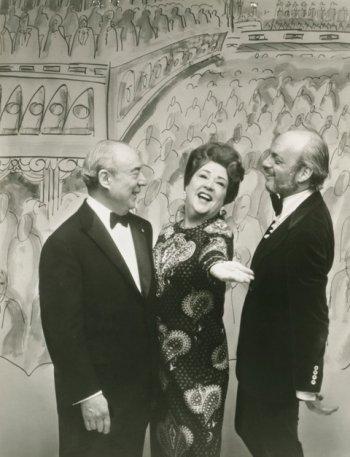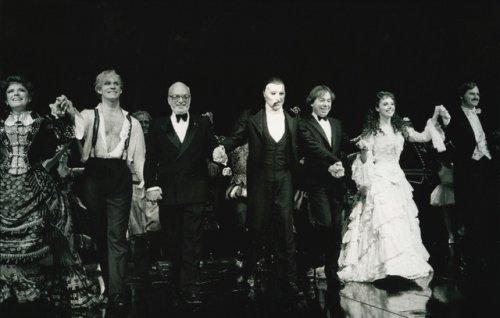Book review: “Sense of Occasion” by Harold Prince
The legendary stage director chronicles his life and career by uniquely updating his 1974 memoir and then continuing to the present with candor and charm.

Cover art work of “Sense of Occasion” by Harold Prince
[avatar user=”Darryl Reilly” size=”96″ align=”left” ] Darryl Reilly, Critic[/avatar]In 295 taut pages, Harold Prince deftly chronicles the totality of his legendary career as a stage director and producer in Sense of Occasion. From The Pajama Game in 1954, to the 2017 retrospective Prince of Broadway, all of his nearly 50 productions and his stellar collaborators are recounted with candor, straightforwardness and charm over the course of 45 concise chapters.
“It was insane arrogance to write Contradictions in 1974, but in a way it wasn’t, of course. It was just much too soon, but in hindsight I’m glad I wrote it,” says Mr. Prince of his earlier memoir in his introduction. “Now more than forty years later, I’m ready to revisit the book and to complete it—to see where I was right in my assessments and where I was wrong.”
This makes Sense of Occasion a unique work of autobiography. An 89-year-old man commenting on what he wrote at the age of 46, and then picking up where he left off.
The first 26 chapters are the original text of Contradictions with each followed by “”Reflections,” where Prince variously corrects, expands upon and ruminates about that portion. After concluding with the tribulations of the 1974 revival of Candide, the next 19 chapters are new additions that detail all that came after. There’s also a comprehensive appendix of facts about all of his shows and an index.
There are very few anecdotes in this book, and a modicum of names is dropped. It isn’t glamorous because I don’t think the theatre is—not in terms of diamonds and sable.
It’s all a steady and informative treatment that puts a fresh spin on the biographical and professional details that many theater enthusiasts will most likely know backwards and forwards. Minimal personal revelations include a nervous breakdown at the age of 14, and little about his parents.

Daisy Prince taking notes from her father Harold Prince at a rehearsal for “Merrily We Roll Along,” November 1981 (Photo credit: courtesy of the author’s collection)
Some score settling include grievances against the theatrical unions for their chronic intransigence in labor negotiations, resentment over a lack of recognition and royalties for the success of Cabaret, against Clive Davis for his disinterest in recording A Little Night Music for CBS, and New York Times writer Michiko Kakutani for her hatchet job on A Doll’s Life in 1982. The economics of producing for Broadway are insightfully examined from the perspective of the past.
Prince’s successes have been previously documented in numerous books and interviews, so to have him analyze his failures, some of which are quite obscure is highly interesting.
A Swim by the Sea was a Southern family drama that closed out of town in 1958, Call On Kuprin was a play about the Russian space program that ran for 12 performances on Broadway in 1961 and Diamonds was a short-lived 1984 Off-Broadway baseball musical.
With sharp brevity Prince describes his involvement with the many notables he has encountered. Of course, he includes his monumental, artistic and personal relationship with Stephen Sondheim that survived the humbling debacle of Merrily We Roll Along in 1981, “And one thing for certain—we remain best friends…”
Laced throughout the book are perpetual, warm mentions of his wife, Judy, whom he has been married to since 1962, and acknowledgement of their two children. His daughter Daisy took the marvelous cover photograph on the book’s jacket. This iconic image is of a pair of eyeglasses perched upon his bald head while his bearded face has a slight grin.
Seeing Orson Welles in his 1938 historic Mercury Theatre Production of Julius Caesar had a deep and lasting effect on Prince.

Richard Rodgers, Ethel Merman and Harold Prince posing for the cover of TV Guide (Photo credit: courtesy of the author’s collection)
I’ve had theatre ambitions all of my life…my fantasies took the shape of the life I’m living now. How many people can say that?
Born in 1928 to a New York City family of German-Jewish origin who arrived sometime after The Civil War, he grew up in Manhattan, “privileged, upper-middle lower rich class.” Following attendance at private schools, he graduated from the University of Pennsylvania with a liberal arts degree at the age of 19. “I was not a drama major…I do not think you get much valuable, practical experience in college dramatic programs…but I think probably on a postgraduate level.”
After attempting to be a novelist and then a playwright, he talked his way into an unpaid, and later a $25 a week, all-around position in the office of a prominent Broadway director and producer. This employment was interrupted by his serving two years in the U.S. Army, stationed in Germany, after being drafted.
I took George Abbott’s name off of my office door only ten years ago when we moved to a new suite. By then he had been dead for over a decade. My wife, Judy, said it had ceased to be an homage and had become simply macabre.
As he did in Prince’s life, George Abbott (1887-1995) looms over his book. Abbott was Prince’s mentor, champion and savior on several occasions. Prince offers a tender portrait of that occasionally prickly, Grand Old Man of the Theatre, whose career spanned from 1915 into the 1980’s.
Prince formed a partnership with Abbott employee Robert E. Griffith to produce shows that ranged from big hits to flops. After Griffith’s death in 1961, Prince continued to produce on his own and to explore his directing ambitions with a series of well-regarded but commercial disappointments. The turning point came in 1966, where he directed a major hit, Cabaret. That show’s scenic designer Boris Aronson (1898-1980) was after Abbott the primary figure of significance in Prince’s career.
Vibrantly being able to continuously stage eclectic material was due to his absorbing the basic lessons of Abbott, while also encompassing the techniques of Vsevolod Meyerhold, Yuri Lyubimov, Joan Littlewood, Kabuki theatre, and the British music hall. His fixation with metaphor and concept led him to turn down directing many simplistic shows such as Hello, Dolly!

Harold Prince and the cast of “The Phantom of the Opera” taking their opening night bows at the Majestic Theatre, January 26, 1988 (Photo credit: courtesy of the author’s collection)
For me the primary challenge (of On the Twentieth Century) was to see whether I could direct farce—pratfalls and double takes. Whether I had the capacity to make things outrageously funny and still be honest.
Beside the long list of productions that he worked on, there are two tangible facts that are testaments to his firm grasp of the sensibilities required in sustaining artistry in the commercial theatre. He has collected 21 Tony Awards in the categories of producing and directing as well as for lifetime achievement. Then there is The Phantom of The Opera which he directed. It’s the longest running show in the history of Broadway, having opened in 1988.
Introspective, practical and focused, Sense of Occasion is a vast contribution to the annals of theatrical history by one of its leading figures.
I remember when we dressed in the best we had for live theatre because we regarded it as an event of special importance. I sat in the balcony of the magnificent Empire Theatre on Forty-First Street and Broadway to see “Life with Father” in “the suit”—one with matching jacket and trousers and a white shirt and tie. I remember my heart beat faster as curtain time approached—anticipating a rare and precious occasion.
Sense of Occasion by Harold Prince
Published by Applause Theatre & Cinema Books, an imprint of Hal Leonard
Hardcover, $29.99 (343 pages)






Leave a comment